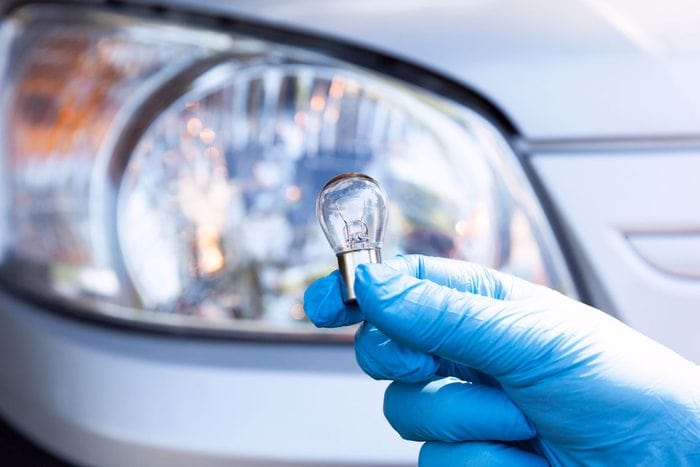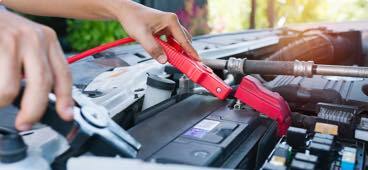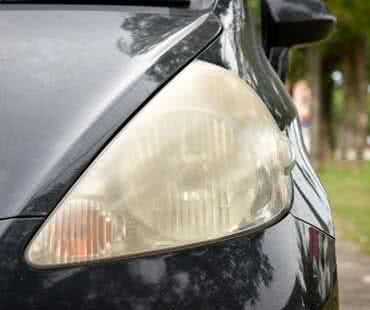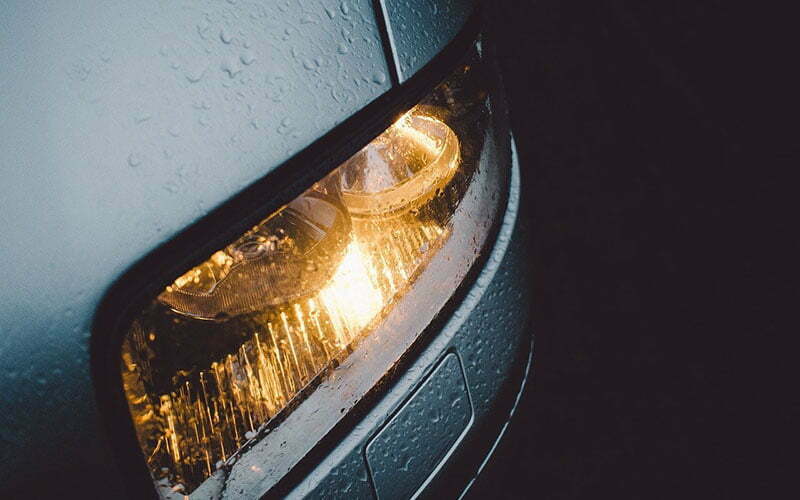Car lights dimming and brightening can be a common and often frustrating issue for drivers. It can occur when the car’s electrical system, battery, or alternator is not functioning properly, and can lead to safety concerns while driving at night or in low visibility conditions. In this article, we will explore the causes of car lights dimming and brightening and discuss some possible solutions for fixing the problem. We will also discuss some tips for preventing the issue from occurring in the first place. Whether you’re an experienced mechanic or a car owner looking to learn more about this common problem, this article is for you.
Causes of Car Lights Dimming and Brightening
Bulb Issue

In addition to the issues mentioned above, problems with the car’s light bulbs can also cause the lights to dim or brighten. Some potential issues with the bulbs that can cause this problem include:
- Worn out bulbs: If the light bulbs in your car are old or have been used frequently, they can become worn out and start to dim or brighten.
- Damaged bulbs: If the bulbs have been damaged, for example, by being bumped or dropped, they may not function properly and can cause the lights to dim or brighten.
- Incorrect bulbs: Using the wrong type of bulbs for your car can cause problems with the lights. For example, using bulbs with a higher wattage than recommended can cause the lights to dim or brighten.
- Dirty or corroded connections: If the connections between the bulbs and the car’s electrical system are dirty or corroded, it can cause the lights to dim or brighten.
It’s important to regularly check and maintain the bulbs in your car to ensure they are functioning properly and to prevent problems with the lights.
Battery issue

There can be several possible causes for car lights dimming and brightening. One common cause is a problem with the car’s battery or charging system. When the battery is not receiving sufficient charge, or when it is not able to hold a charge, the electrical system of the car can become unstable, causing the lights to dim or brighten unexpectedly.
Other potential causes of car lights dimming and brightening include:
- A faulty alternator: The alternator is responsible for charging the battery and providing power to the electrical system of the car. If the alternator is not working properly, it can cause the lights to dim or brighten.
- Loose or corroded connections: If the connections between the battery, alternator, and other electrical components are loose or corroded, it can disrupt the flow of electricity, causing the lights to dim or brighten.
- A faulty voltage regulator: The voltage regulator helps to maintain a consistent voltage level in the electrical system of the car. If it is not working properly, it can cause the lights to dim or brighten.
If you are experiencing issues with your car lights dimming and brightening, it is recommended that you have the problem inspected by a mechanic to determine the cause and have it repaired as needed.
Yellowed or dirty Headlights

Yellowed or dirty headlights can affect the visibility of your car while driving at night or in low light conditions. This can be a safety hazard, as it can make it difficult to see the road ahead or other vehicles.
There are a few common causes of yellowed or dirty headlights:
- UV radiation: The headlights of a car are subjected to a lot of UV radiation, which can cause them to yellow or become cloudy over time. This is especially true if the car is driven frequently in areas with high UV levels, such as at high altitudes or in sunny climates.
- Environmental factors: Dirt, grime, and other contaminants can accumulate on the surface of the headlights, causing them to appear yellow or dirty. This can be due to driving on dirty or dusty roads, or simply living in an area with high levels of pollution.
- Age: Headlights can yellow or become cloudy over time due to simply age and wear and tear. This is especially true if the car is driven frequently or is exposed to harsh environmental conditions.
To restore the clarity of yellowed or dirty headlights, you can CLICK HERE
Step by Step Guide to Fix Car Lights And Dimming Problems
To fix car lights that are dimming or experiencing other issues, you can try the following steps:
Check the battery: The first thing to do is to check the car’s battery. A weak or dead battery can cause the lights to dim or not work at all. You can check the battery’s charge using a battery tester or multimeter. If the battery is dead or weak, you will need to replace it.
Check the alternator: If the battery is fine, the next thing to check is the alternator. The alternator is responsible for keeping the battery charged and providing power to the electrical system. If the alternator is not working properly, it can cause the lights to dim or flicker. You can have the alternator tested by a mechanic or check it yourself using a multimeter.
Check the wiring: If the battery and alternator are functioning properly, the next step is to check the wiring. Loose or damaged wiring can cause the lights to dim or flicker. You can inspect the wiring for any visible damage or looseness and have it repaired or replaced if necessary.
Check the light bulbs: If the wiring is fine, the next step is to check the light bulbs. Failed or failing light bulbs can cause the lights to dim or flicker. You can check the light bulbs by visually inspecting them and replacing any that are damaged or burnt out.
If you are unable to identify the cause of the dimming or flickering lights, it is best to have the issue diagnosed by a qualified mechanic. They will be able to identify the root cause and recommend the appropriate repair. It is important to have car light issues fixed as soon as possible to ensure the safety of your vehicle and other drivers on the road.
Tips for preventing car lights dimming and brightening
There are several steps you can take to help prevent your car’s lights from dimming and brightening:
Keep the battery and alternator in good condition: A failing battery or alternator can cause fluctuations in the electrical system, which can result in dimming or brightening lights. Regularly checking and maintaining these components can help to prevent problems.
Use high-quality bulbs: Using high-quality headlight bulbs can help to ensure consistent performance and minimize the risk of dimming or brightening.
Check and clean the electrical connections: Corroded or loose electrical connections can cause problems with the flow of electricity, which can result in dimming or brightening lights. Regularly checking and cleaning the connections can help to prevent problems.
Use a voltage stabilizer: A voltage stabilizer is a device that helps to regulate the flow of electricity in the electrical system, which can help to prevent dimming or brightening lights.
Have the electrical system checked regularly: Regularly having the electrical system checked by a mechanic can help to identify and fix any issues that may be causing problems with the lights.
By following these steps, you can help to prevent dimming and brightening lights and ensure that your vehicle’s electrical system is functioning properly.
FAQS
Q: How much does cost to fix car Dimming?
A: In general, the cost of repairing dimming headlights can range from a few hundred dollars for a simple fix, such as replacing a faulty bulb, to several thousand dollars for more complex repairs, such as replacing the alternator or rewiring the electrical system. The final cost will depend on the specific problem and the parts and labor required to fix it.
Q: Why does one headlight have less brightness than the other?
A: If one headlight is dim and the other is bright, it could be due to a problem with the headlight itself, the electrical system, or the wiring. Here are a few possible causes of this issue:
Faulty headlight: If one headlight is dim and the other is bright, it could be due to a problem with the headlight itself. This could be due to a variety of factors, such as a failing light bulb, a damaged reflector, or a problem with the headlight assembly.
Wiring issue: If only one headlight is experiencing issues, it could be due to a problem with the wiring specifically for that headlight. This could be due to loose connections, damaged wiring, or other issues.
Q: Can Dim Lights Be Caused By A Bad Battery?
A: Yes, a bad battery can cause the lights in a car to dim. The battery is the primary source of power for the electrical system in a car, and if it is weak or dead, it can cause the lights to dim or not work at all.
Q: When my bass hits, why do my lights dim?
A: If the lights in your car dim when the bass hits, it could be due to a problem with the electrical system. The electrical system in a car is designed to handle a certain amount of power, and if it is being overloaded, it can cause the lights to dim.
Q: Why Do My Lights Brighten As I Speed Up?
A: The alternator’s voltage regulator could be a potential cause of brightening headlights when the vehicle is accelerated. The alternator is responsible for generating electricity to power the electrical systems of the vehicle, and the voltage regulator helps to maintain a consistent level of electrical current.
If the voltage regulator is not functioning properly, it could cause the headlights to brighten or dim as the engine speed changes. This could be due to a problem with the voltage regulator itself or a problem with the wiring or connections in the electrical system.
Q: Will a Capacitor Prevent the Dimming of My Lights?
A: A capacitor may be able to help with lights that are dimming, but it is not a guaranteed solution. Dimming lights can be caused by a variety of factors, such as a weak electrical supply, a faulty bulb, or a problem with the wiring.
If the dimming is being caused by a weak electrical supply, a capacitor may be able to help. A capacitor stores electrical energy and can release it when needed to help stabilize the supply of electricity to the lights. However, it is important to correctly size the capacitor and install it correctly in order to see any benefits.
Before attempting to use a capacitor to fix dimming lights, it is important to determine the root cause of the problem. This may require the help of a qualified electrician. If the problem is with the wiring or the bulbs, a capacitor will not be able to solve the issue.
FOLLOW US
